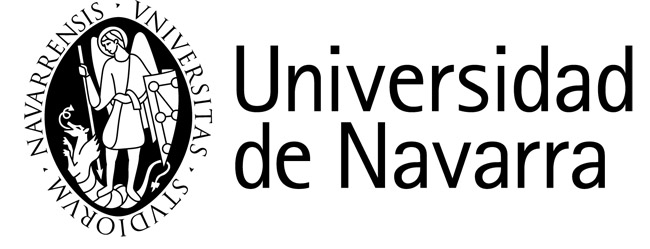on approaching shakespeare ========================== •talking & listening/action/packing: approaching a shakespearean role is fundamen
On Approaching Shakespeare
==========================
•TALKING & LISTENING/ACTION/PACKING: approaching a Shakespearean role
is fundamentally no different than approaching any other role.
=====================================================================
•With any heightened language, find the action, trust your common
sense & your feeling for what sounds right. This will help you to make
the words your own--to move from 'poetry' to a character fighting for
something THROUGH the poetry.
======================================================================
•A play is not written in verse or in heightened prose because it
sounds nice; it is written in a heightened style because that is the
only way the playwright could capture, in words, the life which your
character is experiencing at any particular moment, and that which
your character is trying to achieve (his/her action). Pretty language,
therefore, must be supported—in as much as is possible—by a full
emotional connection to whatever your character is experiencing.
Otherwise, one is simply speaking pretty language. Why does the
character NEED these particular words?
======================================================================
•Poetic or heightened language is language that makes use of various
tools & devices to convey an emotion or an idea as powerfully as
possible, or to drive an action as efficiently as possible. Some of
these tools include: meter & rhythm, imagery, rhyme, metaphor, simile,
alliteration, assonance, & onomatopoeia.
======================================================================
How to SPEAK heightened language:
=================================
•Find the meter/rhythm of the line:
-----------------------------------
-look for & play the STRONG stresses.
•Find the OPERATIVE Word (the words that drive the action):
-----------------------------------------------------------
1: nouns
2: adverbs
3: verbs (usually not operative because they are so often
‘understood’)
4: adjectives
5: articles, prepositions, etc.
•Search for, make use of:
-------------------------
-alliteration (consonants)
-assonance (vowel sounds)
-onomatopoeia ('Gallop apace ye fiery, footed steeds')
-words in opposition/antithesis
-with verse (like iambic pentameter), look for clues in the text as to
action/intention of a particular line: punctuation, run-on lines,
partial lines
•4 Ways to Achieve Vocal Stress
-------------------------------
1: pitch
2: volume/loudness
3: duration
4: timbre/vocal quality
•Beware of:
-----------
-punching for emphasis
-falling inflection--support the ends of your sentences (this is
usually the most important part of the sentence)
-lists--make sure the list grows & builds as organically as possible
-hitting negatives too much—‘no’, ‘not’, ‘don’t’, etc, usually don’t’
need to be hit—the negative is usually understood
Handling the Heightened Language
================================
from PLAYING SHAKESPEARE by John Barton & SHAKESPEARE ALOUD by E.S.
Brubaker
-------------------------------------------------------------------
GENERAL POINTS:
---------------
-have got to find a way to honor the theatrical demands of Shakespeare
AND work truthfully moment-to-moment.
-‘Playing the quality leads to bad acting, and going for the intention
is more interesting and alive and human.’ (Barton 12) Be careful of
trying to be ‘poetic’—leads to generalizing & sentimentalizing.
-“You’ve got to find out why the character needs those particular
words…the emotion in Shakespeare has to be bigger in order actually to
create those words” (Barton 15)
-“Heightened speech must be something that the actor, or rather the
character he’s playing, find for himself because he NEEDS those words
and images to express his intention…you’ve got to find them or coin
them or fresh-mint them” (18)
HANDLING THE VERSE:
-------------------
-Shakespeare was a playwright—a man of the theatre. He wasn’t writing
proper, precisely metered verse—he was writing about people IN ACTION.
Don’t get too wrapped up in the rules.
-you don’t need to talk quickly; just THINK quickly. Think ON the
line, not BETWEEN the line.
-honor the line and the sentence. The English sentence tends to carry
the primary meaning at the end. This is one of the reasons for the
iamb: the line ends on a strong stress.
-Types of feet:
-IAMB = weak strong
-TROCHEE = strong weak
-SPONDEE = strong strong
-ANAPEST = weak weak strong
-DACTYL: = strong weak weak
-the rhythm of iambic pentameter approximates the rhythm of our
natural everyday speech—we tend to talk in iambs & 5 feet (10
syllables) is a fairly typical length for an English sentence
-blank verse = unrhymed verse
-to find the rhythm of a verse line, first find the action; then trust
your common sense and your feeling for what sounds right more than the
'rules' of poetry.
-to get more specific, though, find the STRONG stresses (long vowel
sounds almost always get a strong stress).
-a line that does not scan is said to be SPRUNG. If a line is
'sprung', the playwright is probably telling you something.
-watch for punctuation clues: commas, colons, semi-colons, periods,
exclamation marks (compare different versions).
-a short verse line usually indicates a pause of some kind
-if the line is end-stopped (with a period, semi-colon, colon, or
comma) you should usually take a little beat before moving to the next
line; but if the line is not end-stopped, you’re generally meant to
run-on to the next line.
-a shared verse line usually means that the 2nd speaker should pick
right up when the 1st speaker is finished—no pause.
-feminine endings (lines ending in a weak stress):
-the feminine ending helps to soften the jolting effect of stopping
every line on an accented syllable.
-the feminine ending can also help propel you into the next line.
-two unaccented syllables placed side by side, speed up speech; two
accents side by side, force the speaker to stop.
-a caesura is a break in the middle of the line—indicated with perhaps
a period, semi-colon, or colon.
-beginning a line with an accent can give a strong and energetic
opening to a line.
-contractions/elisions: a word contracts when it is placed in a phrase
so that two relatively unaccented syllables occur side by side. When
this happens, the vowel of the weaker of the two is cut out, or
elided, which shortens the word.
-interest, Margaret
-to enforce
-the 'v' sound: evil, devil, even
-soliloquies:
-should almost always be TO THE AUDIENCE. If so, who is the audience
to you, & what do you need from them? And really talk to them; don’t
talk at them.
-PROSE:
-prose is often used by the more ‘common’ characters; by the upper
crust when they’re talking about more down-to-earth, domestic affairs;
& often used as ‘reality’ breaking into the sentimentality of poetry.
-but whatever the reason, when Shakespeare switches from prose to
poetry or visa versa, he’s usually telling you something.
-when speaking prose, look carefully for the operative words & the
strong stresses.
•Bibliography:
==============
PLAYING SHAKESPEARE by John Barton
----------------------------------
SHAKESPEARE ALOUD by E.S. Brubaker
----------------------------------
 NORMALE SCHIKANE ODER MOBBING ? TESTEN SIE SELBST OB
NORMALE SCHIKANE ODER MOBBING ? TESTEN SIE SELBST OB GUTHRIE SCHOLARSHIP APPLICATION NAME PAGE 2 OF 8 SCHOLARSHIP
GUTHRIE SCHOLARSHIP APPLICATION NAME PAGE 2 OF 8 SCHOLARSHIP MODELOS DE ENCUESTAS FACULTAD DE XXXX CUESTIONARIO DEL PERSONAL
MODELOS DE ENCUESTAS FACULTAD DE XXXX CUESTIONARIO DEL PERSONAL KUZEY KIBRIS TÜRK CUMHURİYETİ RESMİ GAZETE SAYI 49
KUZEY KIBRIS TÜRK CUMHURİYETİ RESMİ GAZETE SAYI 49 EL HABLA EN EL POEMA UNA DILUCIDACIÓN DE LA
EL HABLA EN EL POEMA UNA DILUCIDACIÓN DE LA WIPOINWENTINNDE032 PAGE 19 E WIPOINWENTINNDE032 ORIGINAL ENGLISH DATE JULY
WIPOINWENTINNDE032 PAGE 19 E WIPOINWENTINNDE032 ORIGINAL ENGLISH DATE JULY 2016-I.-IZMJENA-PLANA-NABAVE-2016-
2016-I.-IZMJENA-PLANA-NABAVE-2016- APPLICATION FOR ASSESSMENT EXTENSION EXEMPTION OR SPECIAL CONSIDERATION THIS
APPLICATION FOR ASSESSMENT EXTENSION EXEMPTION OR SPECIAL CONSIDERATION THIS